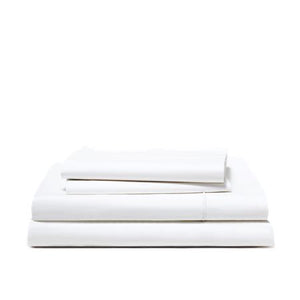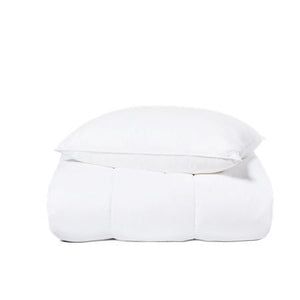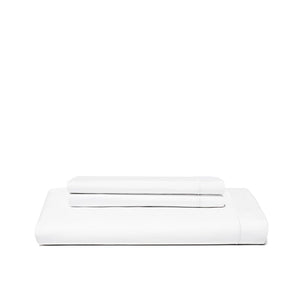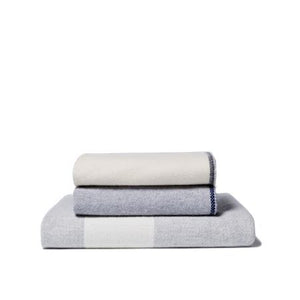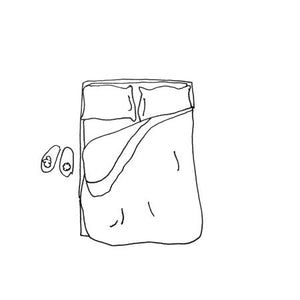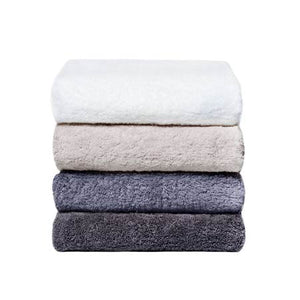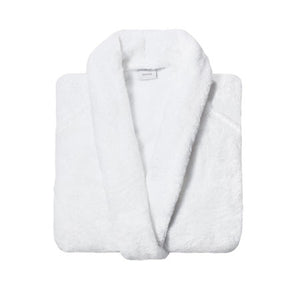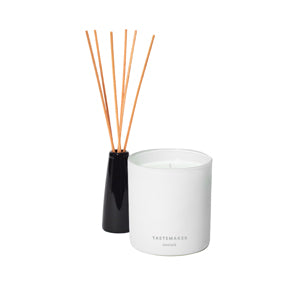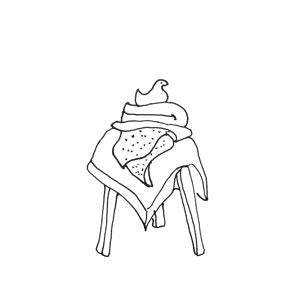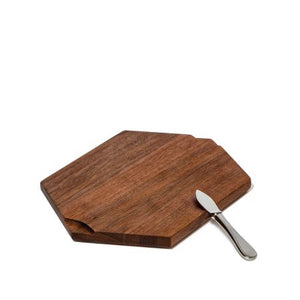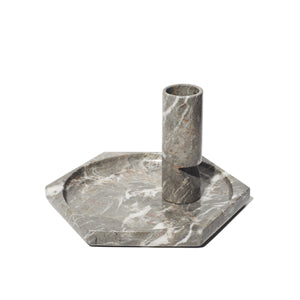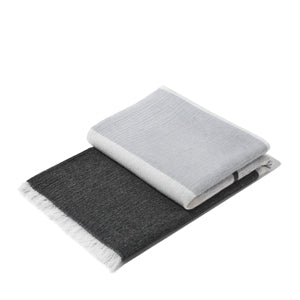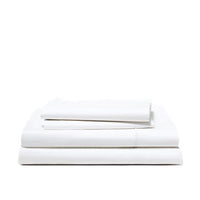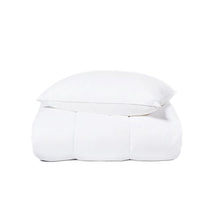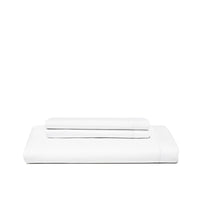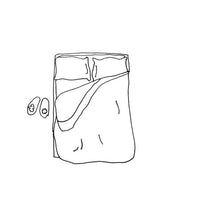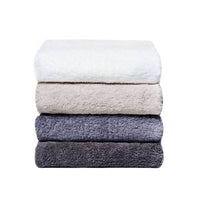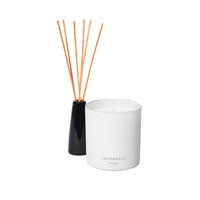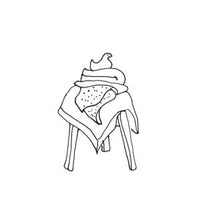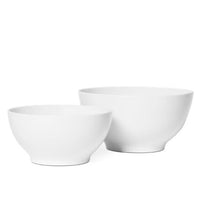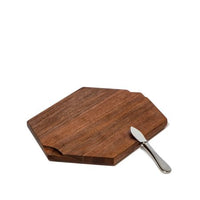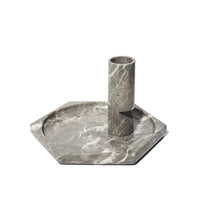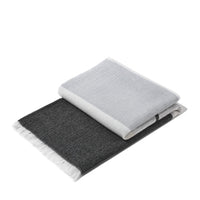The answer is yes if you're wondering whether you can wash a shower curtain. Regularly washing your shower curtain is essential for maintaining a clean and hygienic bathroom. Over time, shower curtains can become stained and mildewed, harboring harmful bacteria and germs.

The washing method depends on the curtain's material. Most fabric shower curtains can be machine washed on a gentle cycle with mild detergent, but always check the care label first. Plastic or vinyl curtains should be hand-washed to prevent damage.
Keep your bathroom fresh and clean with our stylish shower curtains. Visit Snowe Home to explore our collections and buy today to enhance your bathroom's cleanliness and style!
Types of Shower Curtains

There are two main types of shower curtains: fabric and plastic. Fabric shower curtains are typically made of cotton, polyester, or both. Plastic shower curtains, on the other hand, are made of PVC or vinyl.
Fabric Shower Curtains
Fabric shower curtains are a popular choice because they come in a wide range of colors and patterns, can be washed in the washing machine, and can be reused for years. They are also more environmentally friendly than plastic shower curtains.
However, they can be more expensive than plastic shower curtains and may need to be more durable.
Plastic Shower Curtains
Plastic shower curtains are more affordable and often found in hotels and gyms. They are also easy to clean with a damp cloth and can be replaced more frequently than fabric shower curtains.
However, they could be more eco-friendly and may emit harmful chemicals.
Shower Liner
Shower liners are another important component of your shower setup. They are typically made of plastic and are designed to be used with a fabric or plastic shower curtain.
Shower liners are important because they help keep water from escaping your shower and onto your bathroom floor. They are also easy to clean and replace.
Importance of Regular Cleaning
Regardless of the type of shower curtain or liner you have, cleaning them regularly is important to prevent mold and mildew buildup.
Fabric shower curtains can be washed in the washing machine with a mild detergent and hung to dry. Meanwhile, plastic shower curtains and liners can be wiped down with a damp cloth and a mixture of water and vinegar.
Regular cleaning keeps your shower curtain and liner looking clean and fresh and helps prevent the spread of bacteria and other germs. This is especially important if you share a bathroom with others or have a weakened immune system.
Pre-Cleaning Preparation

Before washing your shower curtain, you must prepare a few things to ensure the process goes smoothly. This section will guide you through the necessary pre-cleaning preparations.
Gathering Supplies
To wash your shower curtain, you will need the following supplies:
- Detergent
- Vinegar
- Baking soda
- Bleach (if applicable)
- Sponge or microfiber cloth
Make sure you have all the necessary supplies before starting the cleaning process.
Identifying Curtain Material
It is important to identify the material of your shower curtain before cleaning it. Different materials require different cleaning methods. Check the care label on the shower curtain to determine the appropriate cleaning method.
Reading Care Labels
The care label on your shower curtain provides information about the material and care instructions. Before cleaning your shower curtain, read the care label carefully to follow the instructions correctly.
If the care label allows, you can wash your shower curtain in the washing machine. Add detergent and a cup of vinegar to the wash cycle. For plastic or vinyl curtains, add a cup of baking soda to the wash cycle instead of vinegar. Then, use a gentle cycle and cold water.
If you prefer to wash your shower curtain by hand, fill a bucket with warm water and add detergent. Use a sponge or microfiber cloth to clean the shower curtain. Rinse thoroughly with water and hang to dry.
Cleaning Techniques

When cleaning your shower curtain, you can use a few different methods depending on the curtain's material and the level of cleaning required. In this section, we'll cover the most effective cleaning techniques to help you keep your shower curtain looking fresh and clean.
Hand Washing Methods
Hand washing your shower curtain is a simple and effective way to remove dirt and grime.
To do this, fill a large bucket or bathtub with warm water and add laundry detergent. Then, gently scrub the curtain with a soft-bristled brush or sponge, paying extra attention to particularly dirty or stained areas. Rinse the curtain thoroughly with clean water and hang it up to dry.
If your shower curtain is made of a delicate material, such as lace or silk, it's important to use a gentle hand-washing method.
Fill a sink or basin with cool water and a small amount of mild detergent. Then, gently swish the curtain in the water, careful not to agitate it too much. Rinse the curtain thoroughly with cool water and hang it up to dry.
Machine Washing
Many shower curtains can be machine washed, but it's important to check the care label first to ensure this is safe for your particular curtain.
If your curtain is machine washable, simply remove it from the shower and place it in the washing machine on a gentle cycle with a small amount of laundry detergent. Add a few towels to the load to help scrub the curtain clean. Once the cycle is complete, hang the curtain up to dry.
Spot Cleaning and Stain Removal
Spot cleaning is a quick and easy way to remove small stains or spots on your shower curtain.
Mix equal parts water and distilled vinegar, and gently scrub the affected area with a soft-bristled brush or sponge. Rinse the curtain thoroughly with clean water and hang it up to dry.
For more stubborn stains, you may need to use a stain remover. Apply the stain remover directly to the affected area and let it sit for a few minutes before gently scrubbing with a soft-bristled brush or sponge. Then, rinse the curtain thoroughly with clean water and hang it up to dry.
Mold and Mildew Removal
If you notice any mold or mildew on your shower curtain, it's important to immediately prevent it from spreading.
Mix a solution of one part bleach to four parts water, and use a soft-bristled brush or sponge to scrub the affected area gently. Rinse the curtain thoroughly with clean water and hang it up to dry.
To prevent mold and mildew from growing on your shower curtain, hang it up to dry after each use. To improve ventilation in your bathroom, consider using a fan or opening a window.
Drying and Maintenance

Proper Drying Techniques
After washing your shower curtain, it is important to dry it properly to prevent mold growth.
The best way to dry your shower curtain is by air drying it. Hang the curtain on a clothesline or shower rod and let it dry completely before using it again.
If you don't have a clothesline or shower rod, you can lay the curtain flat on a clean surface to air dry.
Avoid tumble drying your shower curtain, as the heat can damage the fabric and cause it to shrink. If you must use a dryer, use a low heat setting and remove the curtain from the dryer as soon as it is dry.
Routine Care Tips
Following a routine care schedule is important to keep your shower curtain looking new and prevent mold growth. Here are some tips to help you maintain your shower curtain:
- Keep your bathroom well-ventilated to prevent excess moisture buildup. Use a fan or open a window when showering.
- After showering, close the shower curtain to allow it to dry thoroughly.
- Clean your shower curtain regularly to prevent mold growth. Use a mild detergent and warm water to clean the curtain and rinse it thoroughly.
- Use a fabric softener or vinegar rinse to help prevent mold growth on your shower curtain.
- Check your shower curtain regularly for signs of mold or mildew. If you notice any, wash the curtain immediately and dry it thoroughly.
Conclusion
Washing your shower curtain is essential for a clean and hygienic bathroom. Regular cleaning removes stains, mildew, and harmful bacteria. You can keep your curtain fresh and in good condition by using the right cleaning methods for your curtain's material.
Explore Snowe Home for a range of stylish, high-quality shower curtains. Whether you need fabric, plastic, or eco-friendly options, we have the perfect curtain for your bathroom. Visit Snowe Home now to check out our collections and buy today for a cleaner, more beautiful bathroom!
Frequently Asked Questions
How often should you throw out a shower curtain?
Consider replacing your shower curtain every six months to a year, depending on its condition. If you notice persistent mold, mildew, or stains that can't be removed through regular cleaning, it's time to throw out the old curtain and get a new one. Regular maintenance can extend your curtain's life, but a fresh replacement helps ensure your bathroom remains hygienic.
Should the shower curtain be open or closed after a shower?
After a shower, you should close the shower curtain to allow it to dry more effectively. When the curtain is spread out, it promotes better air circulation, which helps prevent the growth of mold and mildew. An open curtain can trap moisture in folds, creating a breeding ground for bacteria.
Can you wash shower curtains in hot water?
You can wash shower curtains in hot water, but checking the care label first is essential. Washing in hot water can help remove tough stains and kill bacteria. However, some materials, especially certain plastics and vinyls, might warp or degrade in high temperatures. Hot water is generally safe for fabric curtains but always verify with the care instructions.
Should a shower curtain go all the way to the floor?
A shower curtain should only go some of the way to the floor. Ideally, it should hang about 1-2 inches above the floor to prevent it from collecting water and soap scum. This height helps ensure proper drainage and reduces the risk of mold and mildew buildup at the bottom of the curtain. A correctly sized curtain keeps your bathroom clean and minimizes maintenance efforts.
